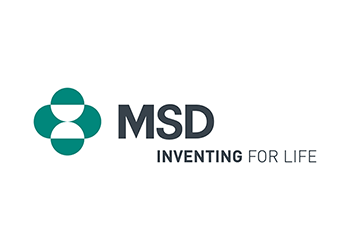You may find it hard to get used to taking medication every day. But to stay healthy, it is very important to take your pills properly. Try to find a way that works for you – in the morning or in the evening, with or without food.
In brief:
- Treatment adherence means that you take your pills as instructed in the patient information leaflet.
- Treatment adherence is essential, otherwise HIV can develop resistance.
- Don't panic if you forget to take a pill, read the leaflet or ask your HIV nurse what’s best to do.
Starting the combo – are you up for it?
Starting with a combination therapy as soon as possible is good for your long-term health. This gives HIV less opportunity to do damage. The HIV medication lowers the amount of virus in your blood. After a few months, the virus has usually become undetectable, which means you can no longer transmit HIV. Starting to take the pills is a big step for many people. For a treatment to be successful it is important you are really up for it. Are you? You can usually take a little time before deciding to start. Preparing well for the start is better than a hasty false start.
You’re not alone
Some people with HIV dread starting HIV medication. Your life will change when you start taking HIV medication. What will the side effects be? Will they be minimal or intolerable? Will you manage to take the pills at a fixed time every day? You are not alone: the HIV nurse and the HIV doctor will set aside enough time to answer all your questions and to discuss your doubts. They can help you to persevere with your treatment, but so can your partner, family or friends. Click here to read more about how HIV care is organised in the Netherlands.
Treatment Adherence
For the HIV medication to work properly, it's very important you use the medication according to the rules. Following these rules is called treatment adherence. Treatment adherence means that you:
- Don't forget a dose.
- Take all the pills each time.
- Follow the food instructions (you take the pills on an empty stomach or with food).
- Take the pills at a fixed time every day.
If don’t adhere to your treatment, HIV can become resistant. Some HIV medication then stops working. This is very likely to happen if you take the pills sometimes and you don’t other times. Click here to read more about resistance.
Tips
Many people have trouble with treatment adherence. Not only people with HIV, but also people taking medicine for other conditions. This may be because of side effects like diarrhoea and nausea, waking up too late to take your pill on time, overwork, fatigue, depression or some other illness. Or you simply forgot to take it. If you have trouble adhering to your treatment, you could try the following tips:
- Ask your HIV doctor and HIV nurse about the pros and cons of the treatment. You may want to write these questions down beforehand, so that you don’t forget them during the talk.
- You can play an active role. You’re much more familiar with your daily routine, eating habits, work and environment than your HIV doctor and HIV nurse are.
- Discuss with your HIV doctor and HIV nurse what could impede your compliance. For instance: tensions at work or in your relationship, problems with housing or psychological problems.
- Discuss with them how to best fit the regimen into your daily life.
- If you have chosen a particular dosing schedule, write it down. Note down when you should take your pills, how many pills that is, and whether you should take them with a meal or on an empty stomach.
- The better prepared you are, the easier the combination therapy will be for you.
Ramadan
People who participate in Ramadan cannot eat or drink from sunrise to sunset. That period might be over 12 hours, especially in the summer. What do you do if you have HIV and are on medication? Talk about participating in Ramadan with your HIV doctor or HIV nurse. They know about your health and can go through your options with you. Your doctor can recommend a combination that will cause the least infringement during the fasting period. Never stop taking your pills during fasting. Does your health prevent you from participating in Ramadan? Are you unsure about your choice? Do you have questions about taking medication during Ramadan? Most religions don’t require sick people to fast, and sometimes they even forbid it. Many religions say you can make up the fast later on. Discuss this with the imam, he can support you and suggest alternatives.
Haven't taken your pills?
It's important to comply with your treatment and take your pills properly. What should you do if you forget to take the pills? What should you do if you vomit after taking the pills? Sometimes the ingestion rules conflict with what you're doing. Sometimes you’re supposed to take the pills on an empty stomach, but you've just eaten something. What should you do then?
Here are tips for practical problems:
Forgot your pills
If you forget to take the pills on time, take them as soon as possible afterwards. Then return to your normal dosing schedule. HIV medication doesn't have to be taken exactly to the minute. For pills taken once a day, there is a margin of 4 hours (i.e. an interval of 20 to 28 hours). For pills taken twice a day, the margin is 2 hours (i.e. 10 to 14 hours).
If you can't remember if you've taken your pills, it's sensible to take them anyway. But not if you find out just before you have to take them again: that would be a double dose.
Is the HIV medication right for you?
The above solutions are useful if you only need to use them once in a while, but you may encounter these problems on a regular basis. Discuss this with your HIV doctor and HIV nurse. Perhaps an adjustment to the dosing schedule can solve the problem. But possibly the combination has certain food guidelines that don't suit you. There is usually another combination that would suit you better.
Identifying and discussing problems in time is better than waiting and finally adjusting the dosing schedule yourself, or even stopping. This is because you run the risk of creating HIV resistance. So your HIV medication won't work anymore. You often find a better solution if you consult your doctor.
HIV medication and food guidelines
There are food guidelines for a number of HIV medications. Some pills have to be taken on an empty stomach, and some don’t. On an empty stomach means at least two hours after a meal, or at least one hour before. It doesn't always mean you shouldn't eat anything. This differs with each HIV medication and each combination. There are also HIV medications you can take both with or without food.
Guidelines like this make using HIV medication more difficult. But not all such guidelines are equally strict. There are food guidelines for the following reasons:
Effectiveness
Sometimes food rules exist to maintain the effectiveness of an HIV medication. The pills you take end up in your stomach first. On a full stomach, the absorption is different to on an empty stomach. Absorption is slower on a full stomach than on an empty stomach. The stomach has to do more than just absorb the HIV medicine. One HIV medication is more effective after ingestion of food, and another HIV medication is less effective. For many HIV medications, it doesn't matter. Those HIV medications don't have any food guidelines.
If you don't stick to the food guidelines, the level of HIV medication in your blood (= blood level) may be too low. If the blood level is too low, the medication will not sufficiently suppress the virus, which means you risk resistance. Then the HIV medication will no longer be effective.









